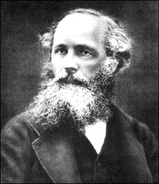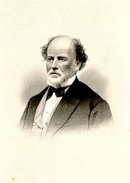Is Evolution Science?
Many evolutionists would like others to believe evolution is science, scientific or a science. It's not. Evolution is a theory that attempts to EXPLAIN science from a materialistic naturalistic worldview or paradigm.
Evolution is the theory that all forms of life found on earth descended from a common ancestor, evolving from a lower form to a higher form, from less complex to more complex, from single celled living organisms to multi-celled organisms over vast periods of time. A commonly accepted hypothesis within the theory of evolution is that natural selection is involved in a extremely gradual evolutionary process in which the most fit or strongest specimen or most vital aspect of a life form survives and those surviving characteristics are passed on from one generation to the next generation through reproduction over billions of years allowing the species [or essential trait] in question to best adapt and survive in its environment.
Click on image to englarge
http://encyclopedia.thefreedictionary.com/evolution
[Evolution is described here in it's basic simplest form. Neo-Darwinism attempts to expand on this rudimentary definition based upon the latest understanding of science. However, evolution remains a theory, not fact. Although,more frequently, some dishonest evolutionists are asserting as fact what is indeed theory. If one observes closely the language used within the more honest Neo-Darwinist's descriptions, one will notice such words as infer, traditionally thought, may constitute, are believed to be, etc., are commonly used. Furthermore, descriptions of the evidence is not to be confused with conclusions about the evidence].
Evolution is weak in the area of origins eg, the origin of life, and as such avoids directly addressing origin issues, and instead relies on hypothetical chemical [organic compounds] reactions or otherwise self-generating synthesis of already existing chemicals or living organisms to explain the origin of life on earth.
Arthur S. Lodge points out that the "Main Open Questions of Evolution" are:
1. The origin of life.
2. Common ancestry.
3. Macroevolution.
4. The mechanism for generating substantially new genetic material.
5. Differentiation.
6. Origin of convergent evolution.
Evolutionists often proclaim, and rightly so, that evolution does not address the issue of origins. And while so doing, will often state creationists are somehow confused when it comes to exactly what evolution is. But what evolutionists are doing when they make these kinds of critical statements is admitting that evolution can not offer a good explanation for the origin of life. Evolutionists start out with life as a given and then attempt to explain how life evolved from that point, all the while conveniently passing over and ignoring completely the vitally important 'origin of life' issue. In short, evolution offers, at best, a weak explantion of how, what science calls life, came into existence. The miracle of life, to the evolutionist, is a given - Life just was. "In the beginning was life..."
That's what Creationists say about God. So, what's the difference? both views are taken by faith. If evolution takes life as a given, then that is not science, its faith.
[still under construction]




















0 comments:
Post a Comment